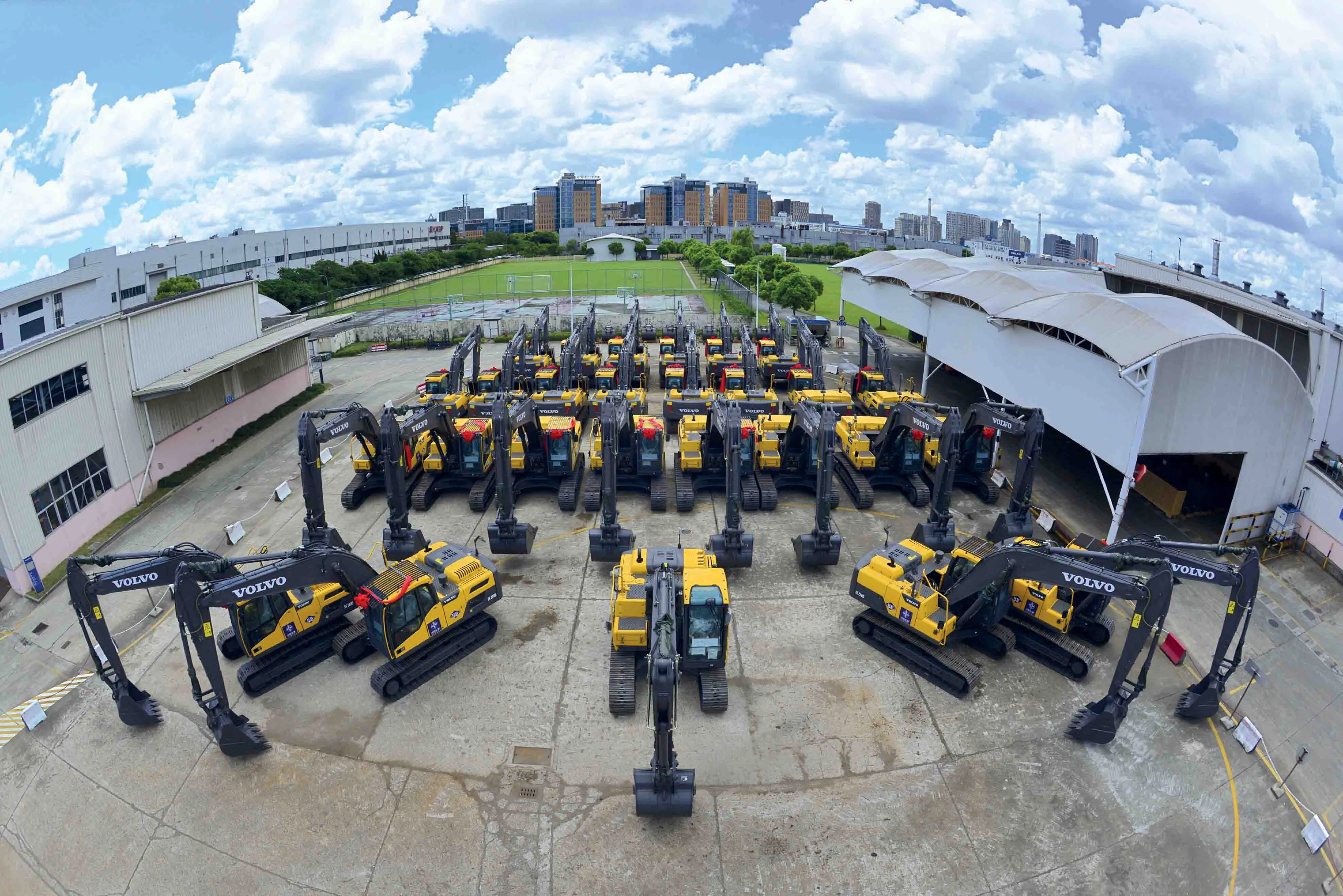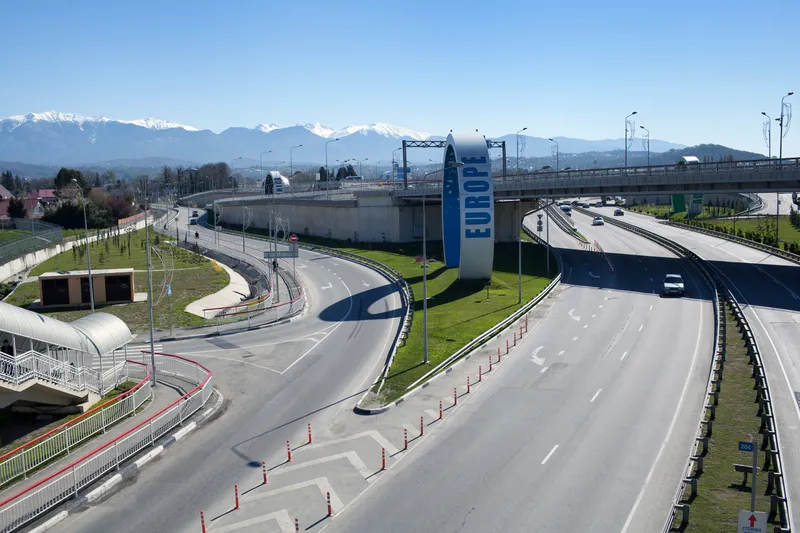China’s infrastructure expansion programme is in the process of transforming the country. Meanwhile its construction market is the largest in the world, comprising around 25% of the country’s US$11 trillion economy. However, slowing domestic growth in recent years has encouraged the Chinese Government to invest in key infrastructure projects in a bid to improve the country’s transport connections.
February 9, 2017
Read time: 3 mins

A new highway link will improve transportation right across Asia - Mike Woof writes
China’s infrastructure expansion programme is in the process of transforming the country. Meanwhile its construction market is the largest in the world, comprising around 25% of the country’s US$11 trillion economy. However, slowing domestic growth in recent years has encouraged the Chinese Government to invest in key infrastructure projects in a bid to improve the country’s transport connections.
The One Belt, One Road initiative – also known as the New Silk Road – includes plans to revive trade routes along the ancient Silk Road, as well as connect China with the rest of Eurasia. The initiative also represents a good deal more than being just a transportation network that will bring Europe and Asia closer together. It will bring economic development to all the countries it will pass through and as a result, the project has been prioritised as a key initiative of the Chinese Government.
A crucial element of the One Belt, One Road masterplan is the China-Pakistan Economic Corridor, a programme intended to strengthen industrial cooperation and connectivity between the two countries. And backing projects such as the China-Pakistan Economic Corridor will help Chinese business, through developing partnerships to the neighbouring nations. And this last points is a key aspect of the economic strategy set by the Chinese Government.
One important stretch of the new economic corridor is a 102km section of the Karakoram Highway-II (KKH-II). This sections connects the cities of Thakot and Havelian in northern Pakistan. The cross-border, high-speed highway is being built over a 42-month period, with the construction work having commenced recently. By the time that the route is completed in 2020, the KKH-II highway will consist of eight traffic lanes, passing over bridges and through multiple tunnels. The project presents a number of challenges due to the tough terrain, which makes access to the working areas difficult in places. The tunnels and bridges are required for the highway in this stretch, due to the topography of the landscape, adding to the complexity of the construction work.
But the project is highly important, both for China and Pakistan. The latter nation predicts that the business development the corridor project will bring should provide over 700,000 jobs by 2030, adding up to 2.5% to the country’s annual economic growth, as well as helping boost stability in the region.
China Road and Bridge Engineering is the contractor carrying out the work and is using a fleet of 52 machines from359 Volvo CE. The machines comprise EC220D and EC300DL crawler excavators, which are being used for a single daily shift of 10 hours. These machines are working alongside a team of 1,000 employees.
The large EC300DL excavators are being used for digging up and spoil removal duties. Meanwhile the 20tonne EC220D crawler excavators are being employed for general earthmoving applications.
In addition to the earthmoving duties, the excavator fleet has also been supplied with Volvo hydraulic breakers. These attachments are being utilised to break up rock in certain areas of the route, particularly in the areas where the bridges and tunnel stretches are being constructed.
The machines were supplied by Beijing Harmony Resources Mechanical Equipment, which is the Volvo CE dealer in the area and supplies the necessary support for the excavators.
China’s infrastructure expansion programme is in the process of transforming the country. Meanwhile its construction market is the largest in the world, comprising around 25% of the country’s US$11 trillion economy. However, slowing domestic growth in recent years has encouraged the Chinese Government to invest in key infrastructure projects in a bid to improve the country’s transport connections.
The One Belt, One Road initiative – also known as the New Silk Road – includes plans to revive trade routes along the ancient Silk Road, as well as connect China with the rest of Eurasia. The initiative also represents a good deal more than being just a transportation network that will bring Europe and Asia closer together. It will bring economic development to all the countries it will pass through and as a result, the project has been prioritised as a key initiative of the Chinese Government.
A crucial element of the One Belt, One Road masterplan is the China-Pakistan Economic Corridor, a programme intended to strengthen industrial cooperation and connectivity between the two countries. And backing projects such as the China-Pakistan Economic Corridor will help Chinese business, through developing partnerships to the neighbouring nations. And this last points is a key aspect of the economic strategy set by the Chinese Government.
One important stretch of the new economic corridor is a 102km section of the Karakoram Highway-II (KKH-II). This sections connects the cities of Thakot and Havelian in northern Pakistan. The cross-border, high-speed highway is being built over a 42-month period, with the construction work having commenced recently. By the time that the route is completed in 2020, the KKH-II highway will consist of eight traffic lanes, passing over bridges and through multiple tunnels. The project presents a number of challenges due to the tough terrain, which makes access to the working areas difficult in places. The tunnels and bridges are required for the highway in this stretch, due to the topography of the landscape, adding to the complexity of the construction work.
But the project is highly important, both for China and Pakistan. The latter nation predicts that the business development the corridor project will bring should provide over 700,000 jobs by 2030, adding up to 2.5% to the country’s annual economic growth, as well as helping boost stability in the region.
China Road and Bridge Engineering is the contractor carrying out the work and is using a fleet of 52 machines from
The large EC300DL excavators are being used for digging up and spoil removal duties. Meanwhile the 20tonne EC220D crawler excavators are being employed for general earthmoving applications.
In addition to the earthmoving duties, the excavator fleet has also been supplied with Volvo hydraulic breakers. These attachments are being utilised to break up rock in certain areas of the route, particularly in the areas where the bridges and tunnel stretches are being constructed.
The machines were supplied by Beijing Harmony Resources Mechanical Equipment, which is the Volvo CE dealer in the area and supplies the necessary support for the excavators.






